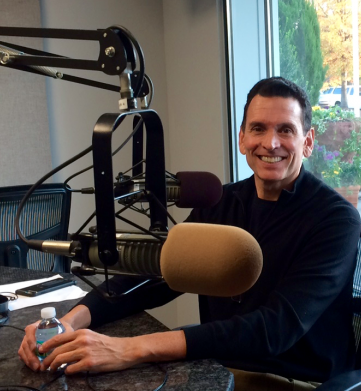 It’s happened to all of us. We hear a song from the past and we are instantly transported to a special time and place, rich in memories, perhaps of moments shared with a loved one or a happy time in our lives. Perhaps it‘s the song we played again and again when we were in college. Perhaps it’s the special song we enjoyed with our loved one
It’s happened to all of us. We hear a song from the past and we are instantly transported to a special time and place, rich in memories, perhaps of moments shared with a loved one or a happy time in our lives. Perhaps it‘s the song we played again and again when we were in college. Perhaps it’s the special song we enjoyed with our loved one
Much has been written about music therapy for people with dementia. The award-winning documentary, Alive Inside, showed how music can be a delightful therapy with no negative side effects. The therapy documented in the movie is called Music and Memory.
With dementia and Alzheimer’s patients, the loss of cognitive function means we lose our loved ones. They do not know who we are. They do not seem to recall our shared memories. It is difficult for them to communicate. We lose them.
Music, however, gives an opportunity to change that. The ability to recall music and rhythm resides in areas of the brain that are unaffected by dementia. Listening to favorite songs stimulates the brain and seems to reduce — even temporarily reverse — cognitive decline. Even after short listening sessions, people with dementia regain energy and interact more normally. Their cognition improves. Sleep patterns are improved. They definitely enjoy themselves. And listening to music—discovering new favorites and rediscovering old ones – is a great activity to share with family members and caregivers.
While playing music for seniors is not new, the notion of developing a customized playlist is, and that is the key to the Music and Memory program. Just because someone grew up in the 40’s doesn’t mean that they like big band songs. One of our clients grew up playing the violin and her big favorites are violin solos.
That’s where Steve Jobs helped out. While he did not invent the MP3 player, he had a vision of making it easy for people to find favorite songs, sample new ones and make a customized playlist. The iTunes experience revolutionized how we search for and enjoy music on a personalized basis. Other companies (Pandora and Spotify come to mind) have also made contributions to the ways we personalize music listening. It’s the personalization of the music listening experience that makes Music and Memory so powerful.
If you have an elder loved one with dementia, spend time exploring his or her favorites. You will not be disappointed. Read more here on how to set up a Music and Memory program for a friend or loved one.
About the Author:
 Lorenzo Mejia and his wife, Mary Lynn Ryerson, are the owners of Acorn, a caregiver registry located in Chapel Hill.
Lorenzo Mejia and his wife, Mary Lynn Ryerson, are the owners of Acorn, a caregiver registry located in Chapel Hill.
They founded Acorn based on their experiences caring for his mom, who suffered with Alzheimer’s Disease. In 2013, he became a Qualified Dementia Care Specialist. In 2014, the Alzheimer’s Foundation named him the Dementia Care Professional of the Year in the United States.
Lorenzo is the founder of Dementia Friendly Orange County an effort to make local businesses more accommodating to people with dementia.
Lorenzo speaks often on dementia and the challenges associated with caring for loved ones. He has been interviewed by ABC News and National Public Radio. He is an advisor to Orange County’s OC-CARES Dementia Capable Community Project.


Comments on Chapelboro are moderated according to our Community Guidelines